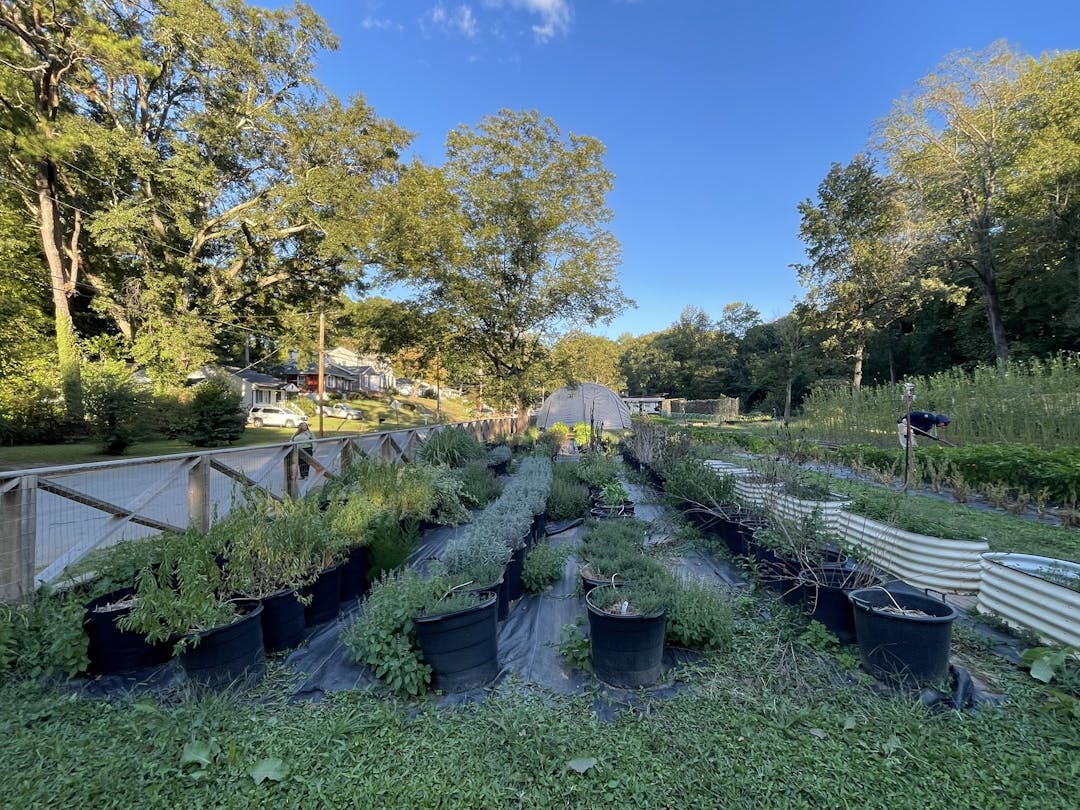Atlanta Housing (AH) and Food Well Alliance (FWA) joined forces Friday to break ground—by planting seeds—at the Leila Valley Community Farm, the first step in transforming a long-vacant site in Southeast Atlanta into a community-focused urban farm and future housing development.
The 7.4- part of a 14-acre parcel along Locust Lane Southeast, has remained unused since 2008. Now, the land is being activated as part of AH’s first food-housing development model, integrating urban agriculture with future housing and green space.
“This will be the first time we have ever collaborated with a nonprofit partner to install a food production space right on-site,” says Atlanta Housing President and CEO Terri M. Lee. “No single project will address every community challenge, but with thoughtful, collaborative planning, we’re working to optimize housing designs to benefit long standing communities.”
At Friday’s event, Atlanta Housing representatives, FWA Executive Director Kate Conner, longtime Leila Valley residents, and volunteers planted the farm’s first seedlings. Attendees also constructed plant beds, installed a shade tunnel, and assembled a water cube to support future irrigation needs.
“The collaboration represents a re-imagination of how vacant land can be used in a way that is more equitable for the community and that offers a more holistic approach to housing,” said Conner. “All of the food grown here will be for this community.”
With production ramping up overtime, the farm is expected to yield thousands of pounds of fresh produce annually, all of which will be donated to the community. The site will also serve as an educational hub for new and beginning growers while improving biodiversity.
Key features of the Leila Valley Community Farm include:
- A 2.4-acre native fruit tree orchard
- 6,000 square feet of growing space
- ADA accessible community gardens beds
- Cold storage, tool and equipment storage, and grow tunnels
- Education pavilion and gathering space
The farm is designed to offer measurable health and environmental benefits. Area residents face higher risks of heart disease, diabetes, and hypertension, and the orchard will offer free, healthy fruit while helping to mitigate industrial pollutants. Rainwater harvesting and stormwater-sensitive landscaping will reduce flooding and discourage illegal dumping.
The Leila Valley Community Farm will serve as a destination for volunteerism, hosting group service days to support ongoing farm development.






